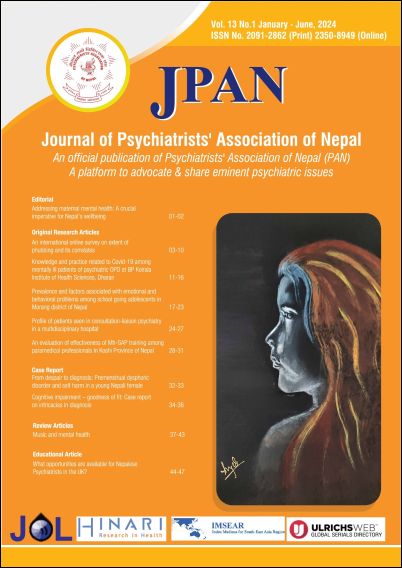Music and mental health
DOI:
https://doi.org/10.3126/jpan.v13i1.68186Keywords:
music, mental healthAbstract
Music is widely used to promote a sense of well-being and to distract patients from pain and other unpleasant symptoms, thought and feelings. The psychological effects of music can be profound, and it can be used as a tool for improving mood, reducing stress, and coping with anxiety and depression. Music therapy, a formalized approach to utilizing music for therapeutic purposes, has been found to be beneficial in treating conditions such as autism, dementia, and schizophrenia. Numerous studies have investigated the potential benefits of music engagement on mental well-being and emotional competence, providing support for the notion that music can have positive effects on mental health outcomes. However, there is a need for further research to understand how these benefits can be effectively incorporated into therapeutic interventions.
Downloads
Downloads
Published
How to Cite
Issue
Section
License
Copyright (c) 2024 Journal of Psychiatrists' Association of Nepal

This work is licensed under a Creative Commons Attribution 4.0 International License.
This license enables reusers to distribute, remix, adapt, and build upon the material in any medium or format, so long as attribution is given to the creator. The license allows for commercial use.




